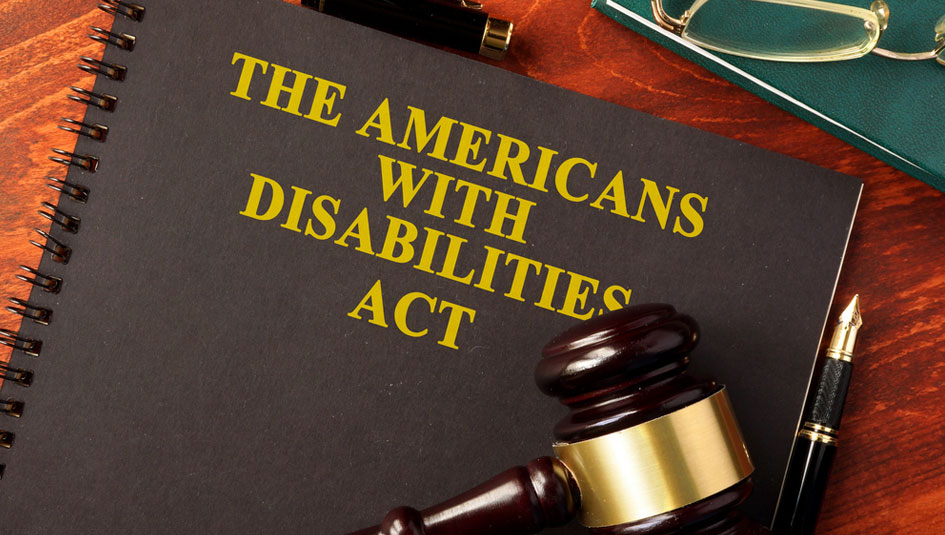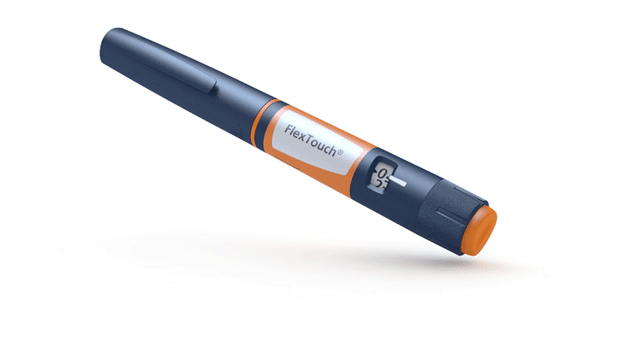Diabetes as a Disability in the Workplace

Disclaimer: Nothing in this article is meant as legal advice.
Most people with diabetes do not see themselves as having a disability. With good treatment including access to insulin, technology, diabetes supplies, and care, many of us live full, healthy lives and even accomplish great feats, like running a marathon or having a family—things that we once thought were impossible.
But it is important to recognize diabetes as a disability especially when it comes to the workplace. There are essential aspects of diabetes that can affect getting and keeping a job that people with diabetes should be aware of in order to protect themselves.
What is a Disability?
According to the Americans with Disabilities Act (ADA) and as explained by the Equal Employment Opportunity Commission (EEOC), a person has a disability if that person:
· Has a physical or mental impairment that substantially limits one or more major life activities;
· Has a record of such an impairment; or
· Is regarded as having such an impairment.
Under the ADA, people with disabilities are afforded protection from discrimination. Specifically, the ADA “prohibits private employers, state and local governments, employment agencies and labor unions from discriminating against qualified individuals with disabilities in job application procedures, hiring, firing, advancement, compensation, job training, and other terms, conditions, and privileges of employment.”
Diabetes is considered a disability. While many do not like to think of the condition as “substantially limiting,” the reality is that this disease interferes with aspects of life that individuals without diabetes do not face. For instance, people with diabetes need to check their blood sugars constantly, face the complications of hypoglycemia (low blood sugars) and hyperglycemia (high blood sugars) that cannot always be predicted, are more susceptible to infections, and may develop complications like retinopathy or neuropathy. And fundamentally, we cannot survive without insulin. In other words, as a disease, diabetes is limiting because we will always be tied to medication and technology or we risk death.
Additionally, the mental aspects that often occur from the management of diabetes, including depression and anxiety, are also considered disabilities. Again, most do not want to think of these as limiting either and in fact, many still live full lives with these illnesses, especially when managed properly. But they are still limiting in that they affect daily life.
Unfortunately, many employers still carry stigma and misunderstanding of disabilities. And this misunderstanding can have catastrophic consequences on the job unless approached correctly.
When to Disclose a Disability
People with diabetes who are searching for a job do not have to disclose that they have diabetes, and an employer cannot ask about disabilities. In fact, it is often best not to tell an employer during the hiring process. While potential employers are not supposed to discriminate based on disabilities, the disclosure may still factor into their hiring decision. Thus, it is best to wait to inform an employer until after starting the job.
Once hired however, it is a good idea to immediately tell a supervisor, human resources, or other management of a disability. I know many want to hide their disabilities because they think that is safer. In fact, having on record that you have a disability will, in the end, afford you more protections. It will ensure that you can ask for what are called “reasonable accommodations” and ostensibly hold the employer to a higher standard if the employer wants to fire you.
Essential Job Functions and Reasonable Accommodations
While the ADA affords disabled individuals, including people with diabetes, many protections, it does not protect a person completely from being fired (or not hired). For, if a disability interferes with the “essential functions of a job,” then the employer does not have to hire that person or continue to employ that person. For example, if a person is constantly in and out of the office for medical appointments, missing vital meetings and work that must be done in the office, an employer could say this interferes with the employee’s ability to perform the essential functions of that position.
However, if that same person asks for a reasonable accommodation, an employer cannot simply fire the person without first making that reasonable accommodation to assist the disabled individual from being able to perform the essential functions of the job. Per the EEOC, reasonable accommodations are meant “to enable people with disabilities to enjoy equal employment opportunities.” For example, if a disabled person needs to go to many medical appointments, the employer may look into whether the disabled employee could telecommute and join conferences remotely through skype or a conference line. If this is possible and allows the individual to still complete the essential functions of the job, then the employer may not be able to fire the employee.
Still, reasonable accommodations cannot pose an “undue burden” on the employer, which essentially means that an employer does not have to invest a substantial amount of resources to make accommodations. For example, if a company is smaller and does not have the technology to set up skype or conference lines, the employer may say that accommodating a request to telecommute places an “undue burden,” and again the employee’s job is at risk.
Diabetes as a Disability in the Workplace
How does this translate to employment for someone with diabetes? Many aspects of diabetes care can interfere with getting and keeping a job, which is why it is important to know when to disclose and what reasonable accommodations that you might request.
First, as noted above, there is still a lot of stigma around disabilities in general. With diabetes and mental illness, this stigma is especially rampant. So, when applying for a job, it may not be wise to disclose that you have diabetes. Doing so may make the employer nervous to hire you and, again, while the employer should not use that in the hiring decision, it is often hard to prove that knowledge of diabetes kept the employer from hiring you (e.g., the employer can make up a lot of excuses to say it was not your diabetes but something else).
In other words, it might be best to hide your pump and CGM sensors, leave the beeping CGM in the car, check blood sugars before you go in for an interview, and confidently present why you will make the best candidate for the job without mentioning your diabetes. While hiding diabetes should not need to occur with the ADA protections, the fact is that it very well could be used against you.
When you do get the job, go ahead and tell your employer. The sooner the better. And make sure to document your discussion. Write down whom you told, when, and that person’s reaction. You should do the same for any future interactions with supervisors or management when your diabetes is discussed. If there are emails or memos that mention your work performance and/or your diabetes, make sure to save an electronic or printed copy of the email for the future. This surely seems like a lot of work, and while we would like to believe that we will never need these documents, we are better off having them in case of being fired. Without them, management may “forget” you ever told them about your diabetes and claim that you just could not do your job.
What might the employer say interfered with your job? The very things we have to do for diabetes management including testing your blood sugars in the middle of a meeting, needing to take a break to deal with a pump or CGM malfunction, eating in the workplace to treat a low, taking time off for doctor’s appointments, calling in sick because you got the flu or your depression has overtaken you, having a lapse in the quality of your work because your blood sugar was high—all of these things could be seen to interfere with performing a job. Without notifying the employer that you are stepping out of meetings or taking a break or needing to eat because of your diabetes, the employer can claim not to know it was disability related.
So it is important to tell your employer you have diabetes and what accommodations you might need for all of these and many more aspects of diabetes management (both physical and mental). You do not have to write down the reasonable accommodations you need, you can simply ask your employer; but it is much better if you do write them down and keep a record of your requests.
The Job Accommodation Network
The Job Accommodation Network (www.askjan.org), a service provided by the U.S. Department of Labor’s Office of Disability Employment Policy (ODEP), has a wealth of information and ideas when considering what accommodations you might need for diabetes. To name a few from that site, you might ask your employer to:
· Allow for storage of medications, such as insulin and/or food
· Provide an area to test blood sugar levels
· Provide an area to administer medications (insulin)
· Provide appropriate containers for needles/syringe disposal
· Provide a rest area for reorientation after hypo/hyperglycemic episode
· Allow frequent breaks
· Reduce stress
· Allow time off for counseling or therapy
· Educate coworkers on emergency situation procedures and identification of symptoms of hypoglycemia or hyperglycemia
The JAN even has an Accommodation and Compliance Series document on Employees with Diabetes to help employers. On the main page, you will also find how to connect with experts with links to their phone, email, and live chat. And finally, there is a list of legal resources to help any individual facing discrimination based on disability.
In the end, every diabetic should have the opportunity to work to the extent that they are able. But in order to ensure you do not face discrimination that would threaten your job, it is important to understand these aspects of disability law. It is okay to think of diabetes as a disability, and it is okay to ask for reasonable accommodations. It does not make you weak or lesser than your colleagues who do not have diabetes. Rather, it means you are standing up for yourself and making sure you have a healthy work environment so that you can do your job and manage your diabetes and mental health at the same time in order to truly succeed and even excel in the workplace.
Notes:
*The ADA only applies to employers who have 15 or more employees.
**Many states have further disability protections. You can look up your state disability agencies or organizations and reach out to them to see what further protections might exist.
Do you have an idea you would like to write about for Insulin Nation? Send your pitch to submissions@insulinnation.com.
Thanks for reading this Insulin Nation article. Want more Type 1 news? Subscribe here.
Have Type 2 diabetes or know someone who does? Try Type 2 Nation, our sister publication.







